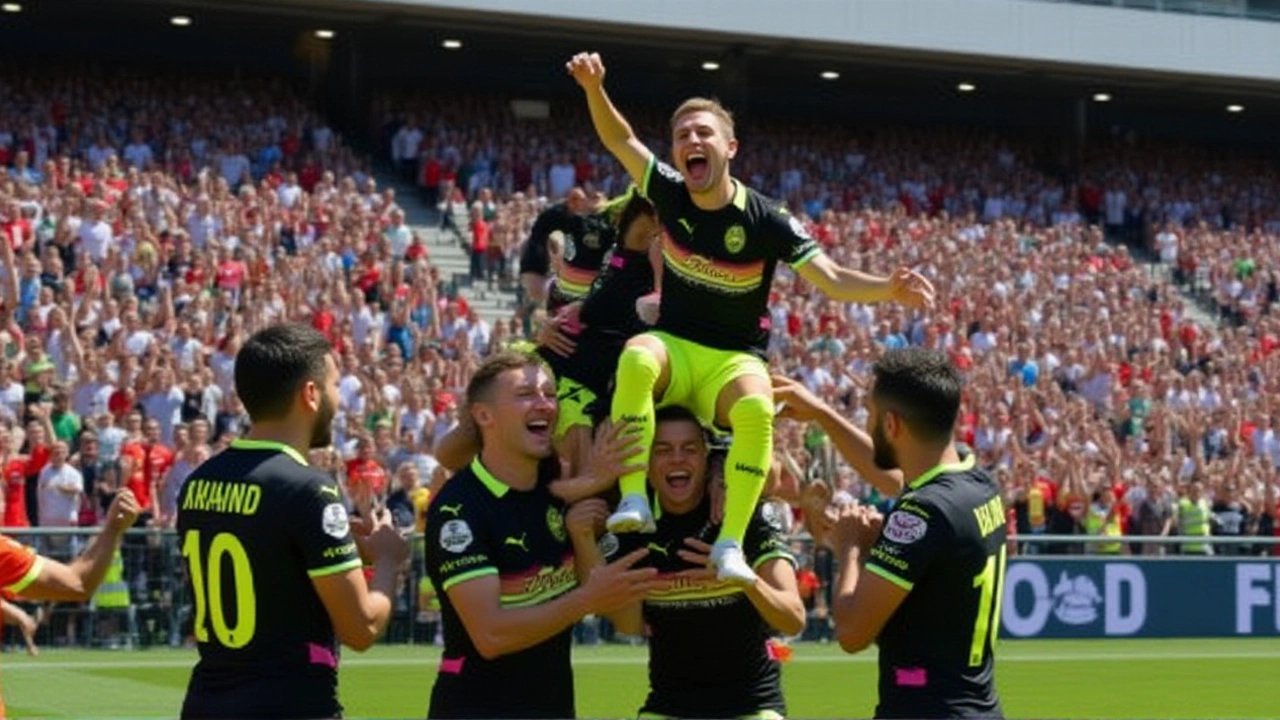
PSV’s 99th‑minute comeback beats Feyenoord, cuts Ajax lead
PSV staged a 99th‑minute comeback to beat Feyenoord 3‑2, cutting Ajax's league lead to one point and reshaping the Eredivisie title fight.
When you think of Dutch football, PSV Eindhoven stands out as a club rooted in the city of Eindhoven. Founded in 1913, it has evolved into one of the Netherlands’ most successful teams, famous for its red‑white shirts and strong community ties. The organization is also known as Philips Football Club, reflecting its historic link to the electronics giant that helped fund its rise. Its fan base stretches beyond the local area, drawing supporters from across the country and even abroad.
The club’s primary competition is the Eredivisie, the top division of Dutch football. The league features 18 teams and runs from August to May, with promotion and relegation shaping each season’s drama. PSV consistently battles for the title, often finishing in the top three, which secures European qualification and boosts its market value.
Home matches take place at Philips Stadion, a modern arena that seats over 35,000 spectators. Located in the heart of Eindhoven, the stadium provides a fierce atmosphere that teams like Ajax find intimidating. Recent upgrades added a roof and improved training facilities, turning the venue into a hub for both senior and youth squads.
PSV Eindhoven often earns a spot in the UEFA Champions League, Europe’s premier club tournament. Competing against the continent’s elite, PSV has reached the knockout stages multiple times, showcasing its tactical flexibility and player depth. The exposure brings significant revenue, draws international talent, and raises the club’s profile beyond Dutch borders.
One of PSV’s biggest strengths is its youth academy, known locally as the PSV Academy, though often referred to simply as the PSV Academy. The system scouts talent from across the Netherlands, offering elite training, education, and a clear pathway to the first team. Graduates such as Arjen Robben, Memphis Depay and more recently Steven Bergwijn have become exportable assets, generating transfer income that funds further squad improvements.
Rivalries add color to PSV’s season. The most heated clash is the ‘Klassieker’ against Ajax, a battle of the Dutch giants that often decides the league crown. Matches with Feyenoord are also intense, reflecting historical regional competition between the north and south of the country. These derbies boost ticket sales, media interest, and player motivation.
The club’s financial backbone still ties back to its original sponsor, Philips, which remains a major shareholder. This relationship provides steady investment, allowing PSV to balance between buying established stars and promoting academy graduates. Sponsorship deals, merchandise sales, and European prize money complement the budget, ensuring compliance with UEFA’s Financial Fair Play regulations.
Recent seasons have seen PSV adopt a high‑pressing, possession‑based style under coaches like Roger Schmidt and Ruud van Nistelrooy. The tactic emphasizes quick transitions, wing play, and a disciplined defensive line. While injuries occasionally disrupt consistency, the squad’s depth—bolstered by players such as Cody Gakpo and Davy Pröpper—helps maintain competitiveness in both domestic and continental fixtures.
Below you’ll find the latest news, match reports, and analysis that capture PSV Eindhoven’s on‑field actions, transfer moves, and off‑field developments. Whether you follow the team for its historic successes or its emerging talents, this collection offers a clear view of where the club stands today and where it aims to go next.

PSV staged a 99th‑minute comeback to beat Feyenoord 3‑2, cutting Ajax's league lead to one point and reshaping the Eredivisie title fight.